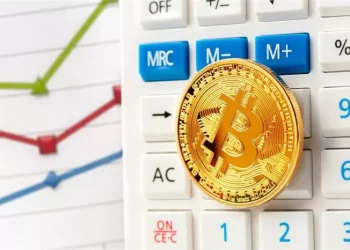Cryptocurrency has become a popular topic in India. Many people want to know if trading in cryptocurrency is legal. The answer is yes, trading in cryptocurrency is legal in India. However, there are rules and regulations that traders must follow. This article will explain the legal status of cryptocurrency trading in India, the rules set by the government, and how traders can stay safe while investing in digital assets.
The Legal Status of Cryptocurrency in India
In India, cryptocurrency is not banned. The Reserve Bank of India (RBI) and the government have not made cryptocurrency illegal. However, they have issued warnings about the risks involved. In 2018, the RBI banned banks from dealing with cryptocurrency exchanges. But in 2020, the Supreme Court of India lifted this ban. Since then, trading in cryptocurrency has been legal.
The Indian government is working on new laws for cryptocurrency. These laws will provide more clarity on how digital assets should be regulated. Until then, trading in cryptocurrency is allowed, but investors must be careful.
Government Regulations and Taxes
The Indian government has introduced taxes on cryptocurrency trading. This shows that the government recognizes cryptocurrency as a legal asset. Here are the key tax rules:
Income Tax: Profits from cryptocurrency trading are taxed under income tax laws. If a trader makes money from buying and selling crypto, it is treated as capital gains. Short-term gains (if crypto is sold within three years) are taxed at the individual’s income tax rate. Long-term gains (if held for more than three years) are taxed at a lower rate.
TDS (Tax Deducted at Source): A TDS of one percent is applied on cryptocurrency transactions above a certain limit. This rule helps the government track crypto transactions.
GST (Goods and Services Tax): Cryptocurrency trading may also attract GST. The government is still deciding the exact rate, but it is likely to be around eighteen percent.
These tax rules prove that cryptocurrency trading is legal in India. The government is not against crypto but wants to regulate it properly.
How to Trade Cryptocurrency Safely in India
Since cryptocurrency trading is legal, many Indians are investing in digital assets. However, traders must follow certain steps to stay safe:
Choose a Reliable Exchange
There are many cryptocurrency exchanges in India. Some popular ones include WazirX, CoinDCX, and ZebPay. Traders should pick an exchange that is registered with the Financial Intelligence Unit (FIU). This ensures that the exchange follows anti-money laundering (AML) rules.
Complete KYC Verification
Most exchanges require Know Your Customer (KYC) verification. Traders must submit identity proof, address proof, and a photo. This helps prevent fraud and illegal activities.
Use Secure Wallets
Storing cryptocurrency safely is important. Traders should use secure wallets. There are two main types:
Hot Wallets: These are online wallets connected to the internet. They are convenient but can be hacked.
Cold Wallets: These are offline wallets, like hardware devices. They are safer but less convenient for frequent trading.
Be Aware of Risks
Cryptocurrency prices can change very quickly. Traders should only invest money they can afford to lose. They should also avoid scams and fake investment schemes.
Future of Cryptocurrency in India
The Indian government is planning to introduce a central bank digital currency (CBDC). This will be a digital rupee controlled by the RBI. At the same time, private cryptocurrencies like Bitcoin and Ethereum will continue to exist.
New laws may come in the future. These laws could bring more regulations for crypto exchanges and traders. However, the government has not announced any plans to ban cryptocurrency completely.
Risks of Cryptocurrency Trading
While trading crypto is legal, it is important to understand the risks. Cryptocurrency prices can change very quickly. Many investors have lost money due to market crashes. Other risks include:
Regulatory Changes: The government may introduce new rules that affect crypto trading.
Scams: Fake exchanges and phishing attacks can steal investors’ money.
Volatility: Crypto prices can rise or fall sharply in a short time.
Investors should only trade with money they can afford to lose.
Conclusion
Trading in cryptocurrency is legal in India. The government has not banned it but has introduced taxes and regulations. Traders must follow the rules and be careful with their investments. By using trusted exchanges, completing KYC, and storing crypto safely, investors can trade without legal problems. The future of cryptocurrency in India looks promising, but traders should stay updated with new laws.
Cryptocurrency is a high-risk investment, but it also offers high rewards. With proper knowledge and precautions, Indian traders can benefit from this growing market.
Related Topics:
Does Coinbase Charge a Fee to Convert Crypto?

















